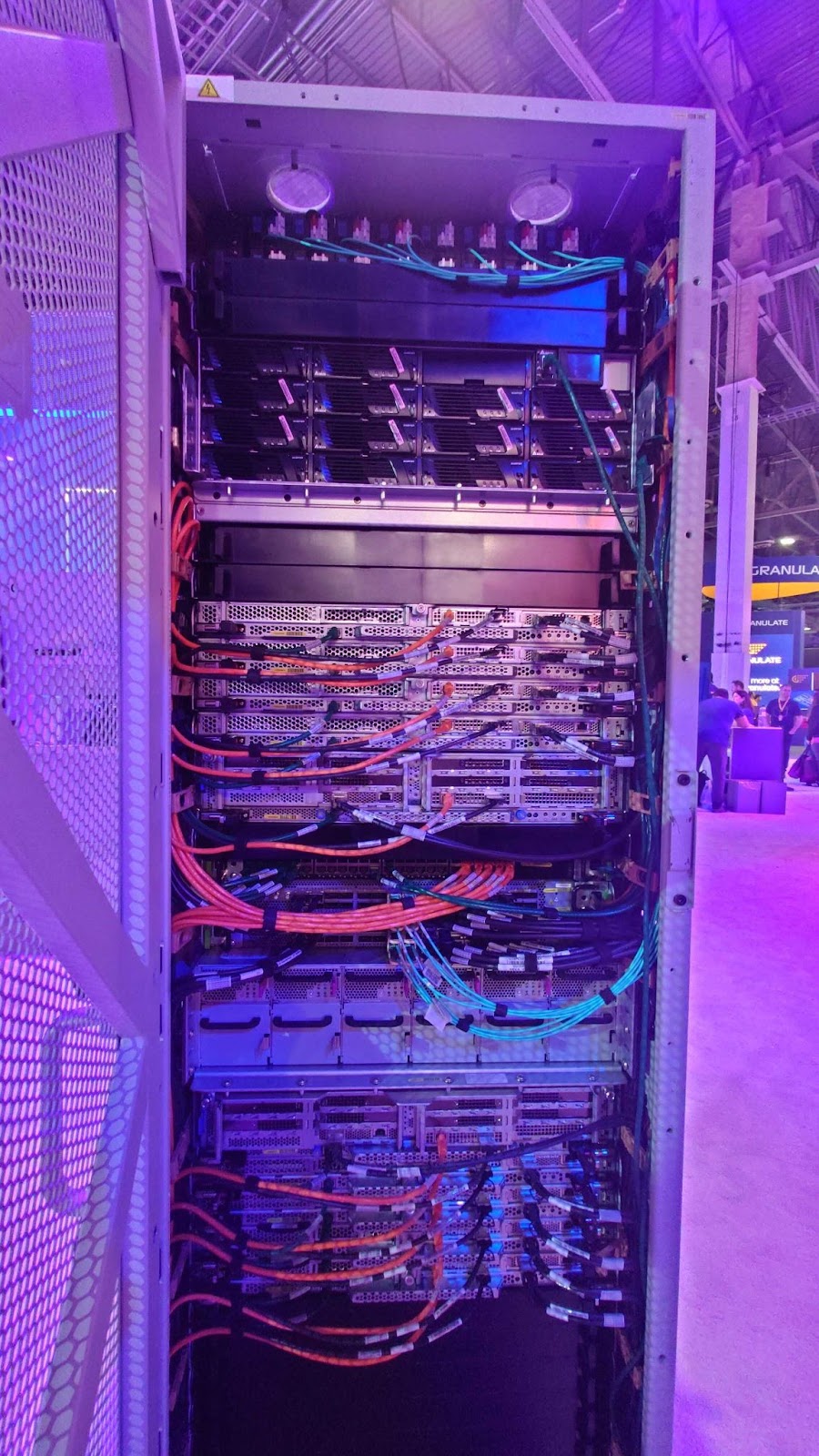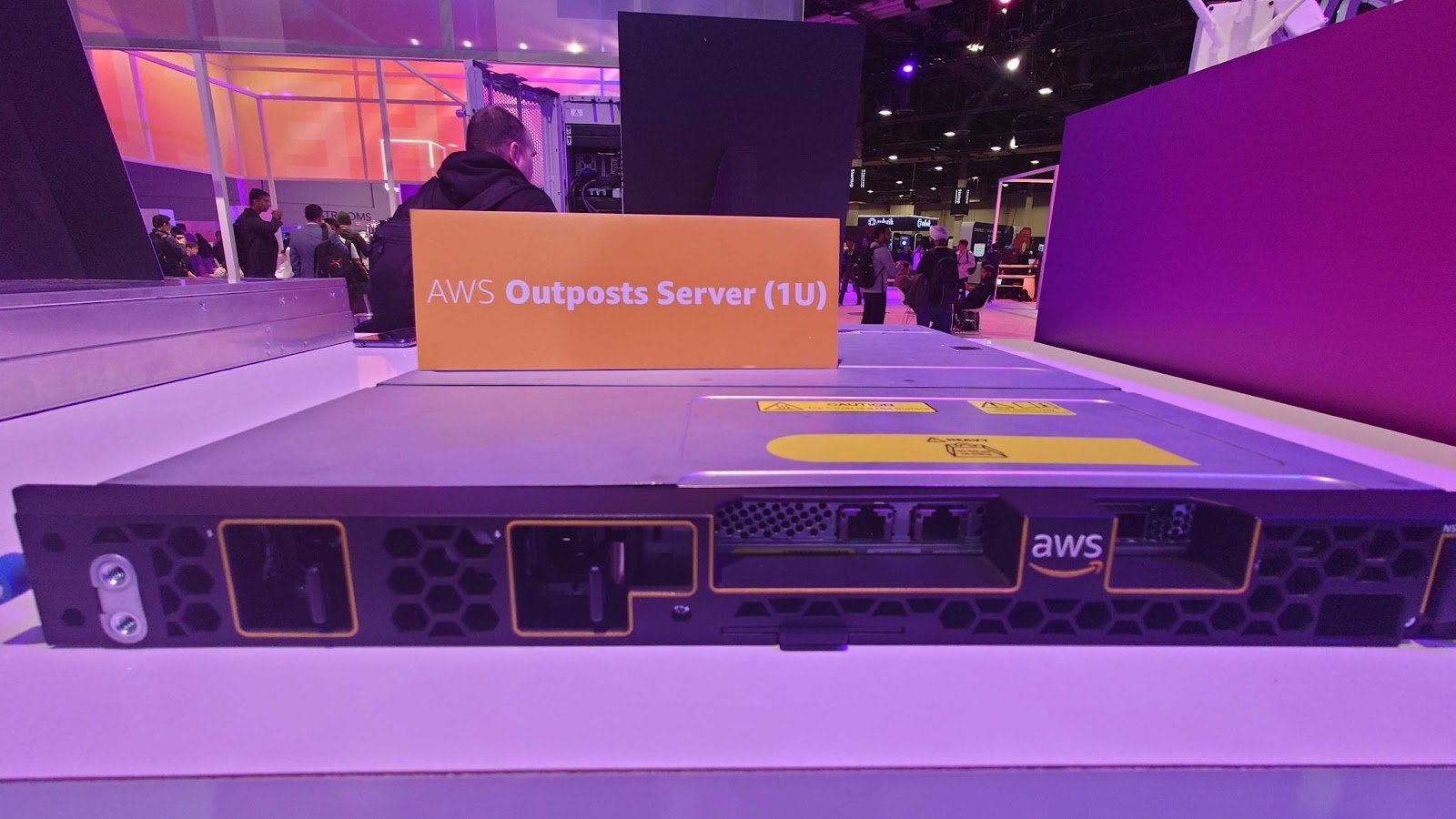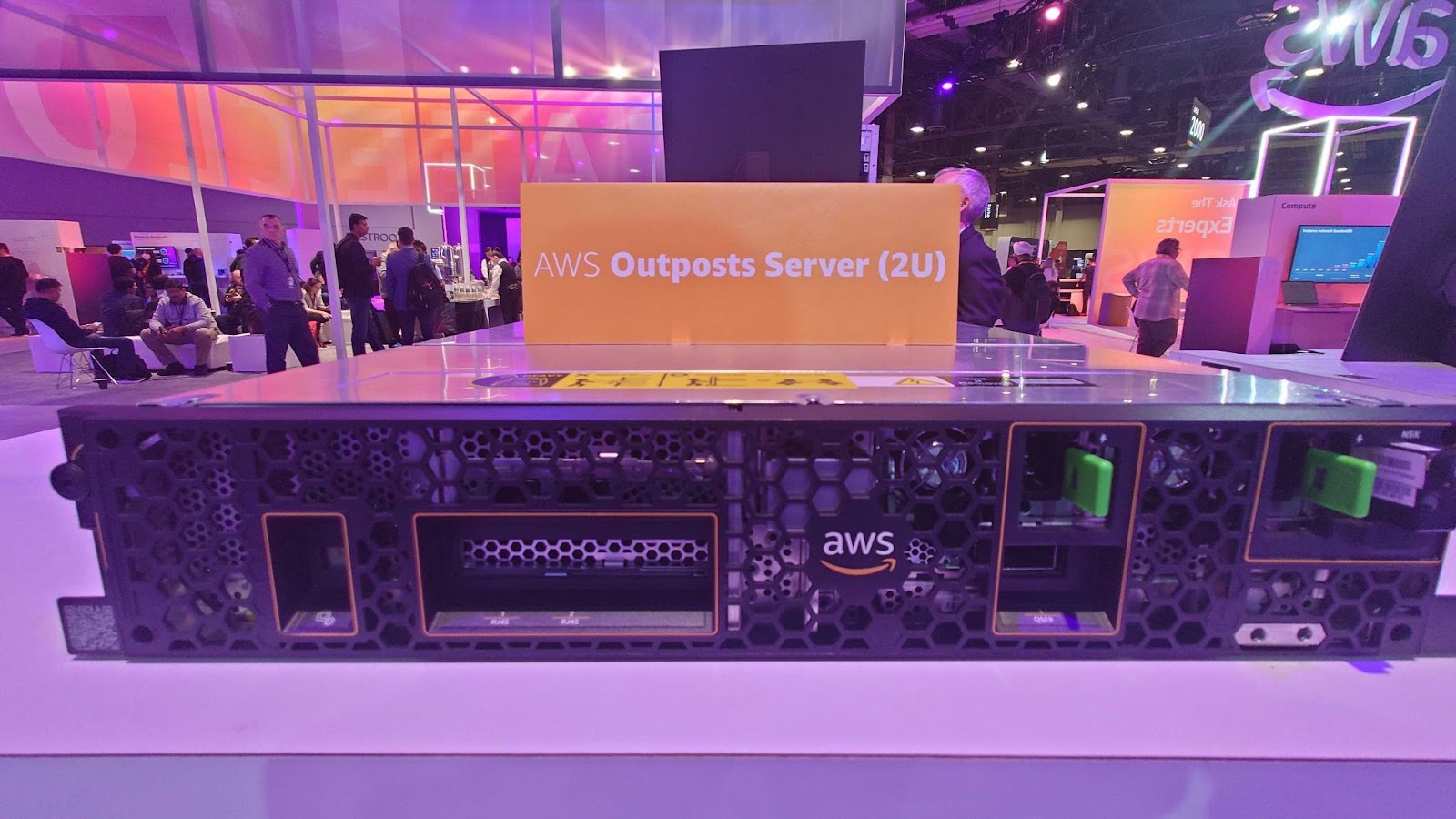Cloud Revolution in Local Infrastructure with AWS Outposts Family
AWS Outposts represents a critical piece in the evolving landscape of hybrid cloud strategies. This service, by seamlessly integrating cloud flexibility and scalability with the security and control of on-premises infrastructure, addresses the complex requirements of modern businesses.

What is the AWS Outposts Family?
AWS Outposts is a service by Amazon Web Services that brings the AWS cloud infrastructure and services directly to the customer's data centre. This service comprises fully managed and customisable physical servers and networking equipment, functioning as an extension of AWS’s cloud infrastructure.
Rack: A rack is a metal frame that neatly and securely holds hardware like multiple servers, network devices, and storage units. In AWS Outposts, this rack contains the equipment that runs AWS's cloud infrastructure and services.
Server: A server is a powerful computer that performs tasks like data processing, storage, and network services. The servers in AWS Outposts provide the necessary power and storage to run AWS cloud services locally.


Reasons for Using AWS Outposts
Low Latency: Provides low latency for critical applications when processed locally.
Data Sovereignty and Local Processing: Meets requirements for local data storage and processing.
Hybrid Cloud Solution: Offers a flexible and scalable hybrid cloud solution by integrating cloud and on-premises resources.
How do AWS Outposts Work?
Hardware Integration: AWS physically places servers with computing and storage capacity in the customer’s data center.
Network Connection: Outposts connect to local networks and the AWS cloud network, facilitating continuous data synchronization and processing capabilities.
Management and Orchestration: Managed through the AWS Management Console, it integrates with AWS services and streamlines the orchestration of resources across cloud and local environments.
When are AWS Outposts used?
Critical Workloads: For high-speed and low latency-dependent workloads.
Legal and Local Processing Requirements: When data needs to be stored or processed locally due to regulatory requirements.
Hybrid Cloud Needs: When integration of local and cloud resources is required,.
Expanded Use Cases for AWS Outposts
Gaming Sector - Data Latency: AWS Outposts plays a critical role in the gaming industry. For instance, for popular games like "League of Legends" by Riot Games, managing servers across different countries is essential. Such games require low latency, and AWS Outposts meets this need with its local data processing capabilities. Using local servers to provide a faster and uninterrupted gaming experience significantly enhances game performance.
Manufacturing Sector - Data Residency: In manufacturing, the intense data flow from IoT devices in factory environments can be processed locally with AWS Outposts. Considering the need for data security and rapid processing, AWS Outposts facilitates the local storage and processing of data generated in factories, meeting data residency requirements. This not only increases data security but also provides real-time data processing and analysis, contributing to more efficient production processes.
Healthcare Sector - Data Security and Compliance: In healthcare, the security and privacy of patient data are of utmost importance. AWS Outposts enables hospitals and healthcare organisations to process and store data locally in compliance with regulations like HIPAA. This enhances the security of patient data while still leveraging the benefits of cloud-based analytics and processing capabilities.
Financial Services - Regulatory Compliance and Data Analysis: The finance sector is subject to strict regulatory requirements, often necessitating local data storage. AWS Outposts allow banks and financial institutions to comply with these regulations while benefiting from data analysis and processing capabilities. This enables faster and more effective decision-making in areas such as risk management and customer service.
Education - Remote Learning and Research: Universities and educational institutions can use AWS Outposts to support remote learning platforms and research projects. Processing data locally provides students with low-latency access and allows researchers to quickly process large data sets.
Retail - Customer Experience and Inventory Management: In retail, AWS Outposts can help stores process customer data locally to provide personalized shopping experiences. It also offers real-time data processing capabilities for inventory management and logistics operations, leading to more efficient inventory control and increased customer satisfaction.
Energy and Resources - Data Processing and Monitoring: In the energy sector, particularly in oil and gas production, AWS Outposts can perform data-intensive monitoring and analysis locally. This enhances production efficiency while providing the necessary real-time data processing for equipment maintenance and fault detection.
AWS Management Console Integration
AWS Outposts is seamlessly integrated with AWS's central management interface, the AWS Management Console. This integration simplifies the management of AWS Outposts and offers several advantages:
Centralized Management: Users can manage cloud and local resources on AWS Outposts via the AWS Management Console. This allows for centralized viewing, monitoring, and management of resources.
Coordination and Control: The AWS Management Console facilitates the configuration and updating of AWS Outposts. Users can manage application deployments, security settings, and network configurations all from one interface.
Automatic Updates and Maintenance: AWS Outposts receive automatic updates from the AWS cloud. This ensures a constantly updated infrastructure and access to the latest AWS features.
Metadata Management
AWS Outposts effectively processes the metadata required for application and data management:
Metadata Transfer and Processing: AWS Outposts collects and processes metadata from running applications and databases. This metadata is used to monitor application performance, resource usage, and security status.
Efficiency and Consistency: The management of metadata maintains continuous consistency and efficiency across cloud and on-premises resources. This ensures the smooth operation of applications even in complex hybrid environments.
Integration and Automation: AWS Outposts can integrate with services like AWS Lambda and automatically share metadata with these services. This allows for advanced automation and smarter application management.
Conclusion
AWS Outposts offers dynamic and flexible solutions to the technological needs of businesses. This service addresses low latency, data sovereignty, and local processing requirements while also providing the advantages of cloud computing flexibility and scalability. AWS Outposts has become an integral part of modern businesses' hybrid cloud strategies, adapting to their changing needs and maximizing the benefits of cloud computing technologies.
Enes Cetinkaya
Cloud Engineer @kloia
